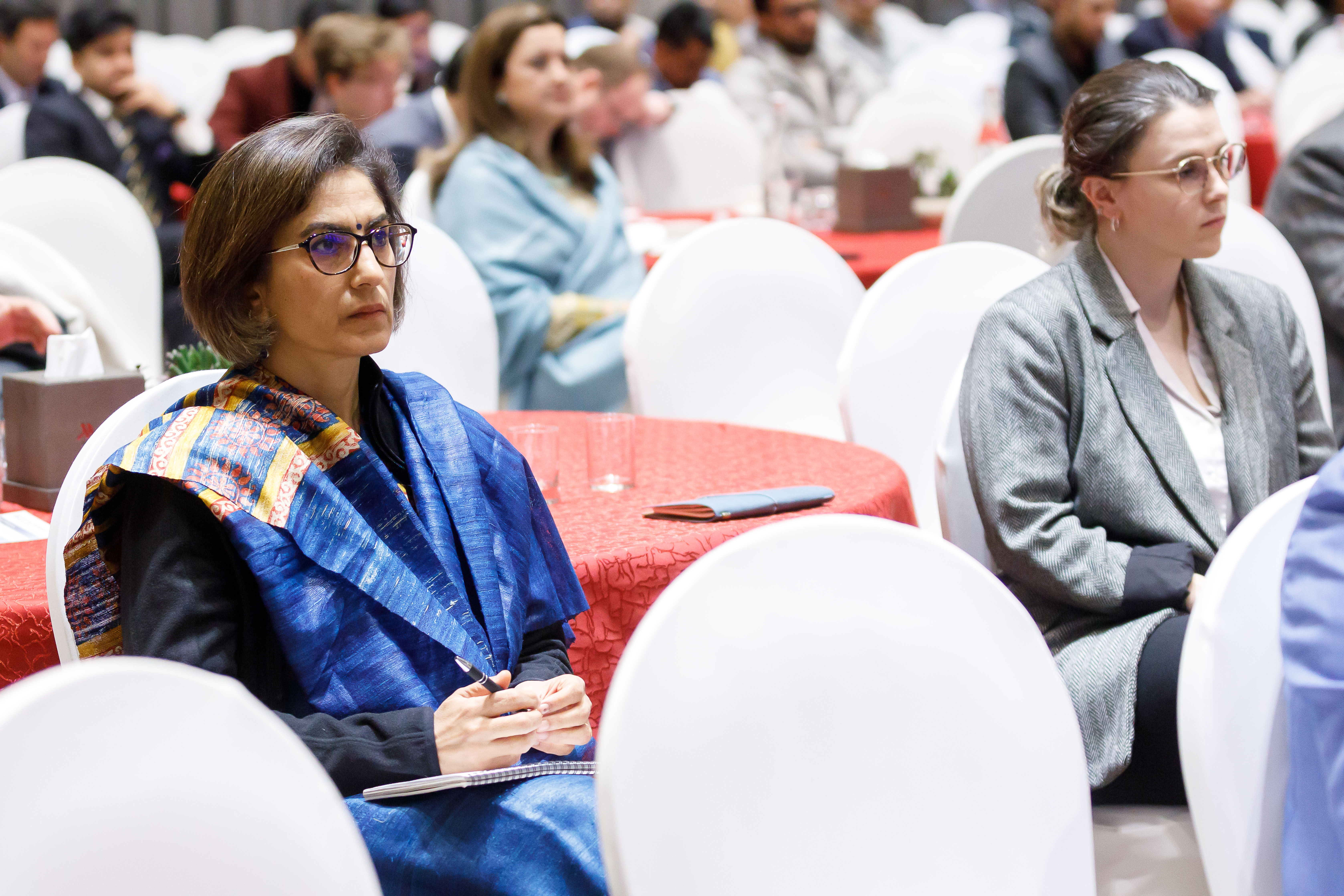Rapidly growing South Asian economies require a skilled and globally competitive workforce. However, these booming economies are facing a significant challenge in brain drain, further exacerbated by the emigration of skilled workers offshore.
In Nepal, one in five young people leaves the country for overseas education each year, predominantly heading to Australia, Japan, Canada, the USA, the UK, and India, according to 2021 data. This trend is expected to grow with an increasing youth population and rising affluence within the middle class.
Higher Education Challenges in South Asia
South Asia, home to approximately 2 billion people, has a rapidly growing young population, where the demand for university placements outstrips available seats. In Sri Lanka, only 44,000 university spots are available annually despite a demand of 171,000. Similarly, India, with 43 million students currently enrolled in higher education, will need to double its university capacity within a decade to meet its target of achieving a 50% gross enrolment ratio in tertiary education.

Tribhuvan University, established in 1959, plays a central role in Nepal's educational landscape, offering a wide range of programs through its central departments, constituent campuses, and affiliated colleges. Over the years, the university has made considerable efforts to expand its reach and improve the quality of education. Despite these efforts, however, the growing demand for college seats continues to present a challenge, and the institution is still working towards fully addressing this need.
The Role of Transnational Education (TNE)
Transnational Education (TNE) programmes play an important role in meeting the growing demand for quality university education and curbing brain drain at the same time. It allows students to pursue globally recognised curricula while based in their home country. These programmes are designed in such a way that they align with local skill development needs to meet the demands of the local economy, inadvertently preventing brain drain.

TNE programmes offer vast opportunities, supporting potential diversification in fields such as Business, IT, Engineering, Hospitality, Languages, and so on. The programmes are run in collaboration with overseas institutions, predominantly in the UK and Malaysia. In Nepal, most of these partnerships are concentrated in the Kathmandu Valley. Currently, 59 private Higher Education Institutions (HEIs) in Nepal, registered with the Ministry of Education, Science and Technology (MOEST), offer Bachelor's and higher-level programmes in collaboration with 34 overseas institutions.
However, accreditation delays, restrictive regulations such as limiting the approval of new TNE programmes to two a year, compliance issues and limited capacity of educational institutions pose a challenge in the smooth execution of these programmes in Nepal.

A proposed ‘Higher Education Act’ aiming to streamline governance and support ongoing governmental reforms may provide some relief to new entrants.
A Pathway to Expanding Access and Enhancing Quality in South Asia
The rising demand for international qualifications in South Asia is highlighted by UNESCO data on outbound student mobility from countries such as Bangladesh, India, Nepal, Pakistan, and Sri Lanka. Acquiring globally recognised degrees, accessing international networks, and developing cross-cultural competencies that improve employability push the demand for international qualifications.
However, financial, logistical and personal constraints prevent a majority of students from pursuing a degree abroad. Making such a degree attainable for students without having to move out of the country presents them with an opportunity to pursue their dream of an international qualification. TNE, therefore, has emerged as a transformative solution extending education beyond borders, bringing quality learning to students in their home country.
TNE works towards internalising higher education, enhancing home-grown educational institutions’ capabilities, fostering fruitful collaborations, and making high-quality education accessible through various platforms and models, including distance and online education, franchise and validation models, or international branch campuses. It offers flexibility in learning pace, location, and delivery methods, enabling students to balance their studies with personal and professional commitments.

TNE fosters multidisciplinary education, enhances research capabilities, and strengthens industry connections. It offers an academic experience outside of traditional structures and helps students develop important thinking and problem-solving skills. It helps them prepare for global competition with their counterparts from other countries. The programmes also help students attain employability by providing them with industry exposure and practical application of their learnings. TNE ensures a smooth transition from academia to the job market through real-world learning experiences via multidisciplinary education and strengthened industry connections.
TNE as a Catalyst for Development
The British Council’s ‘Value of TNE Partnerships Report 2022’ highlights TNE’s role in achieving Sustainable Development Goals (SDGs).
Many global partnerships contribute to quality education (SDG 4), economic growth (SDG 8), and reduced inequalities (SDG 17). TNE models also support gender equality (SDG 5), health and well-being (SDG 3), and sustainable consumption (SDG 12).
Flexible learning options, such as online and part-time courses, promote lifelong learning and continuous skill development, aligning with SDG 4’s objective of fostering inclusive education opportunities. Moreover, TNE fosters global professional networks, enabling research collaborations and business ventures that strengthen innovation in host countries.
The UK has emerged as a leading TNE provider, with over 571,000 students enrolled in UK Higher Education programmes abroad in 2022/23. The country is also the largest TNE partner in South Asia, hosting more than 97,000 students in 2022-2023, according to the UK Higher Education Statistics Agency. However, awareness of TNE remains limited among students and parents in South Asia, stakeholders say.

Despite increasing governmental support in South Asia for TNE as a means of enhancing domestic higher education, providers in Nepal face operational challenges. These include misalignment between Nepal’s academic calendar and international institutions, the need to integrate foundation years for four-year degrees, declining demand for local master’s programmes, and concerns over the recognition of UK degrees in regulated fields such as engineering. Financial and visa-related constraints also hinder student mobility to TNE partner institutions.
TNE holds immense potential in shaping the future of higher education in Nepal by expanding access, improving quality, and addressing the brain drain challenge. With well-structured policies and strategic partnerships, Nepal as well as other South Asian nations can leverage TNE to build a globally competitive and resilient workforce.






you need to login before leave a comment
Write a Comment
Comments
No comments yet.